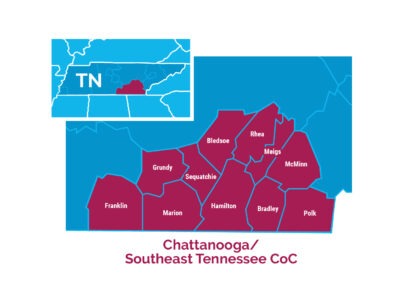
By Mitch Hornecker and Laura Golino de Lovato
Hornecker is the co-chair of the HereTogether coalition board of directors and a former chair of the Portland Business Alliance. Golino de Lovato is executive director of Northwest Pilot Project, a HereTogether coalition board member and co-chair of HereTogether’s advisory committee.
As two long-time leaders working and volunteering in the homeless services arena, we know there is no single “magic” solution to ending homelessness, a complex social and economic problem 40 years in the making. Decades of federal and state defunding of public housing and behavioral health care, an absence of affordable housing for the lowest income people, and a worldwide pandemic have escalated homelessness to the level of a public health crisis.
Yet, one thing bringing us together as advocates in the HereTogether coalition is our shared belief that if we provide sufficient funding and consistently apply proven solutions, we can build a Portland where homelessness is rare and brief.
The first dollars from the voter-approved Supportive Housing Services measure became available nearly a year ago, increasing services to the most at-risk in the Portland area. And now, as part of a coordinated region-wide effort to fight the increase in homelessness, all three Portland-area counties are working with Built for Zero, a data-driven pathway to solving homelessness that has found success in other cities.
Led by national nonprofit Community Solutions, Built for Zero is a methodology currently used by over 100 communities to measurably achieve “functional zero” homelessness – a state where homelessness is rare, brief and nonrecurring. Multnomah, Clackamas, and Washington counties are each working to integrate the framework of Built for Zero into their overall plans for addressing homelessness. Later this month, the Tri-County Planning Body – a citizen-led committee representing all three counties and Metro regional government – will convene to braid the three county plans into one regional approach to solutions.
Recent conversations have focused mainly on data and by-name lists, but the Built for Zero methodology doesn’t start there. By joining Built for Zero, service providers, philanthropic groups, volunteers and governments have made a commitment to a shared aim, and accountability to measurably end homelessness by moving people into housing. This will take a systems-wide approach— which includes by-name data, looking at staffing and processes, deep collaboration and strategic investments.




